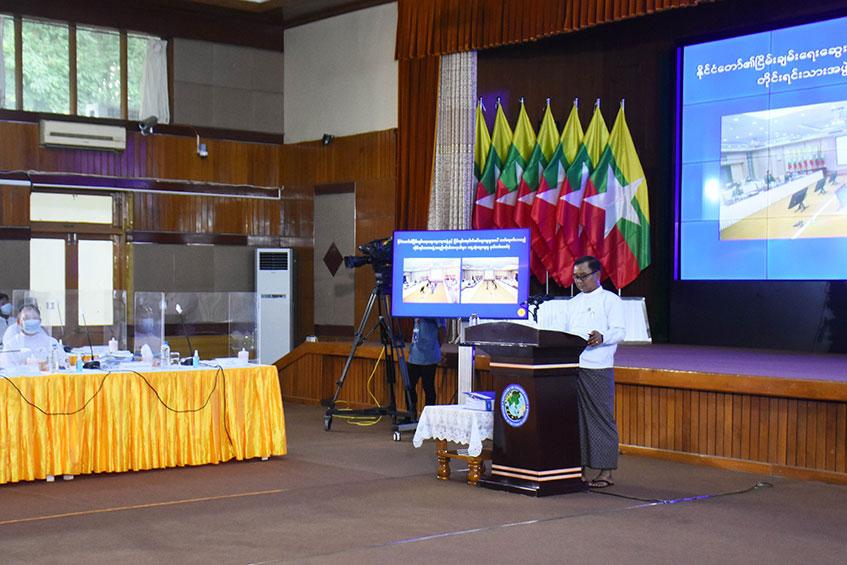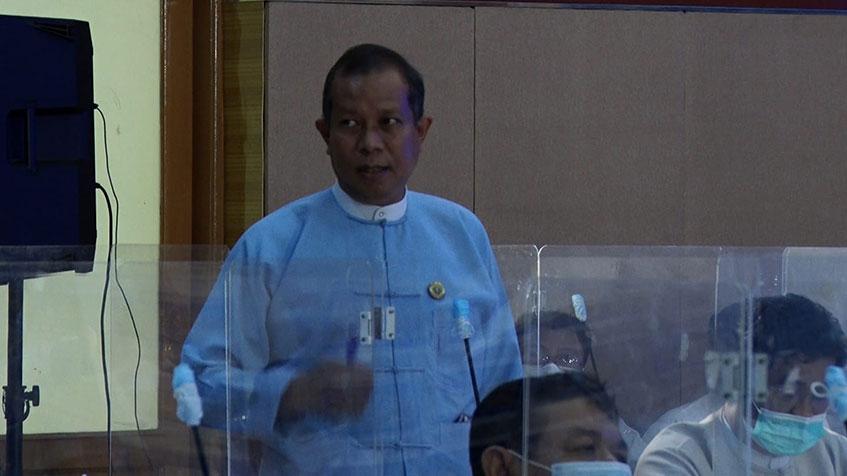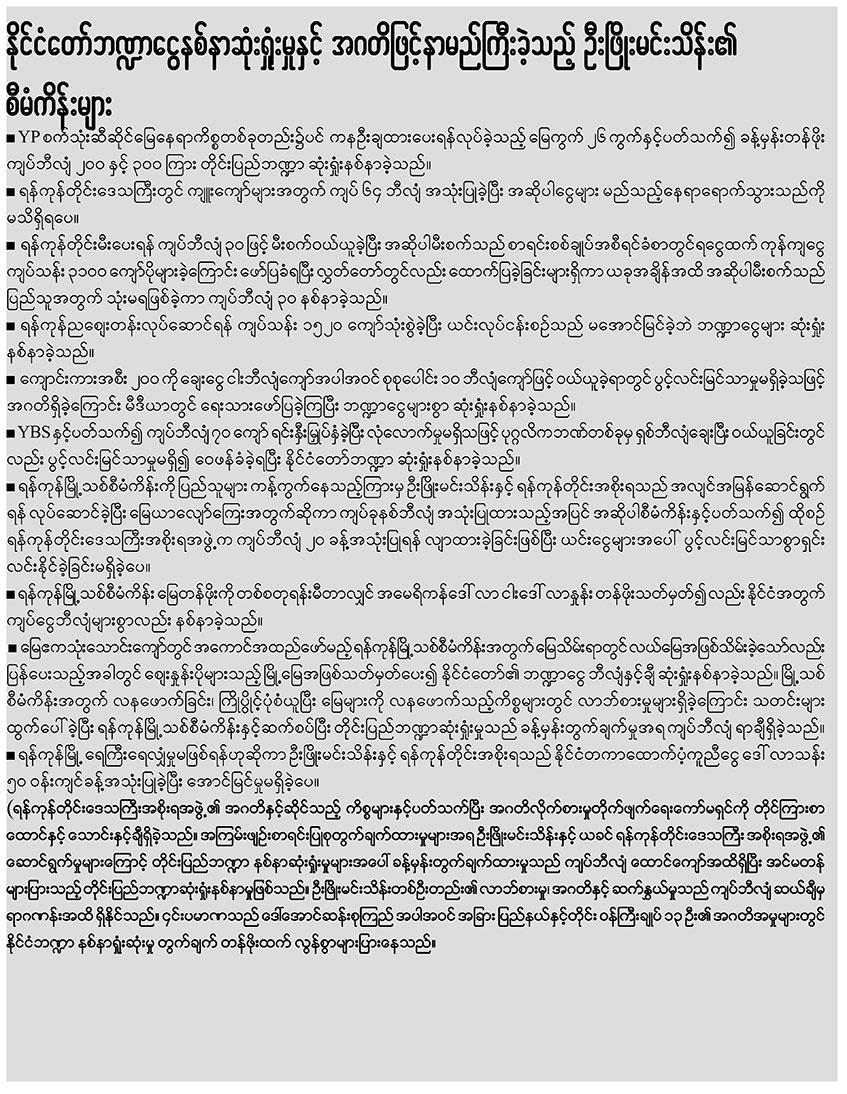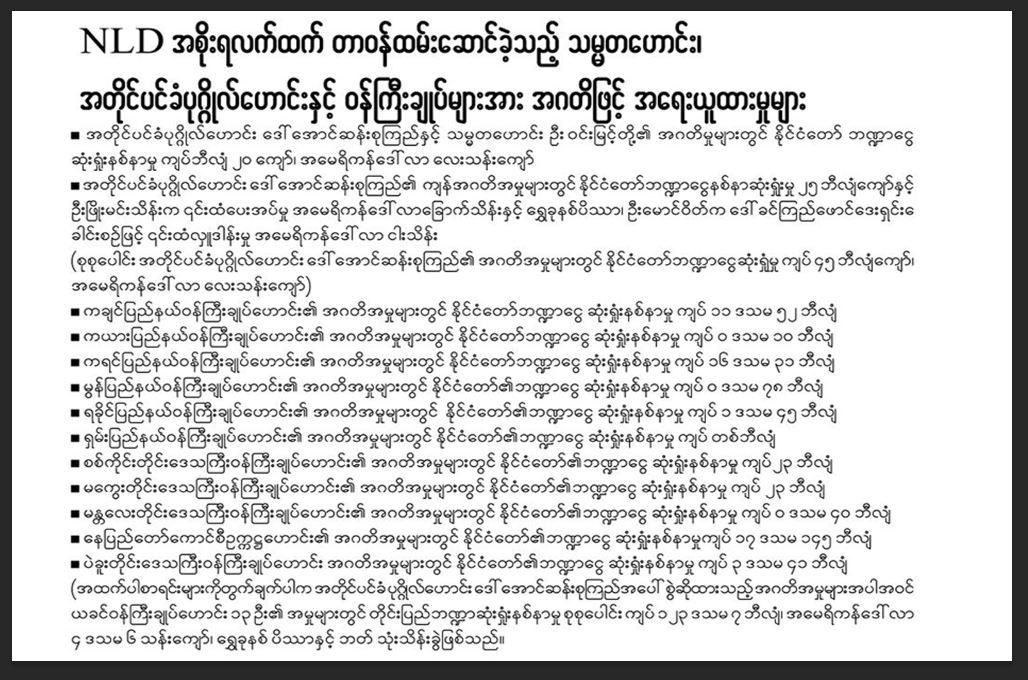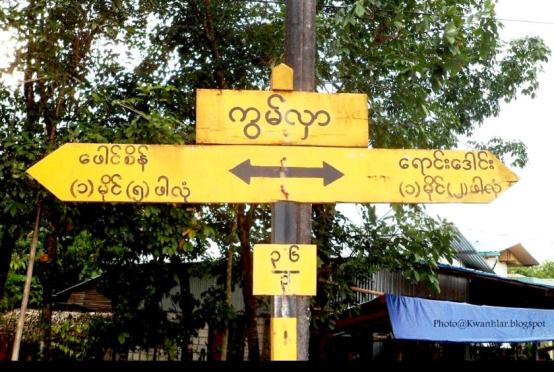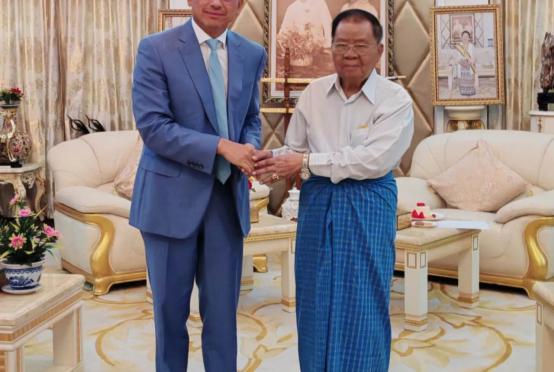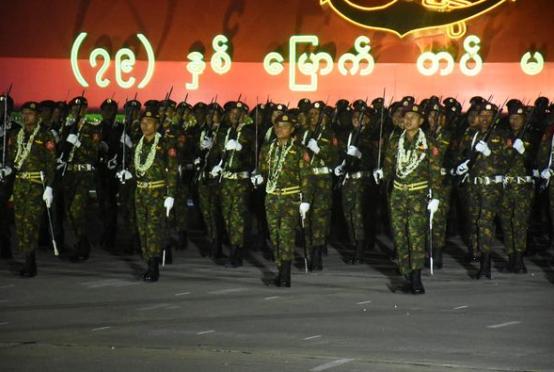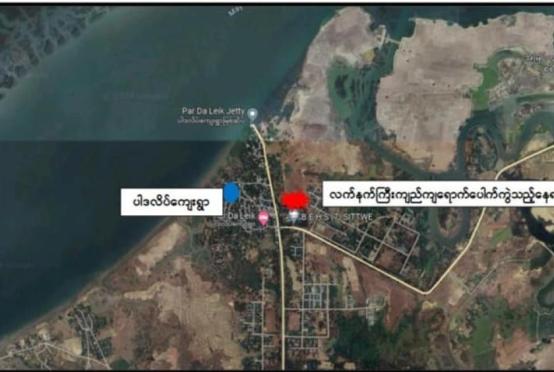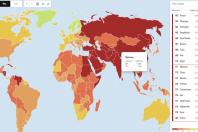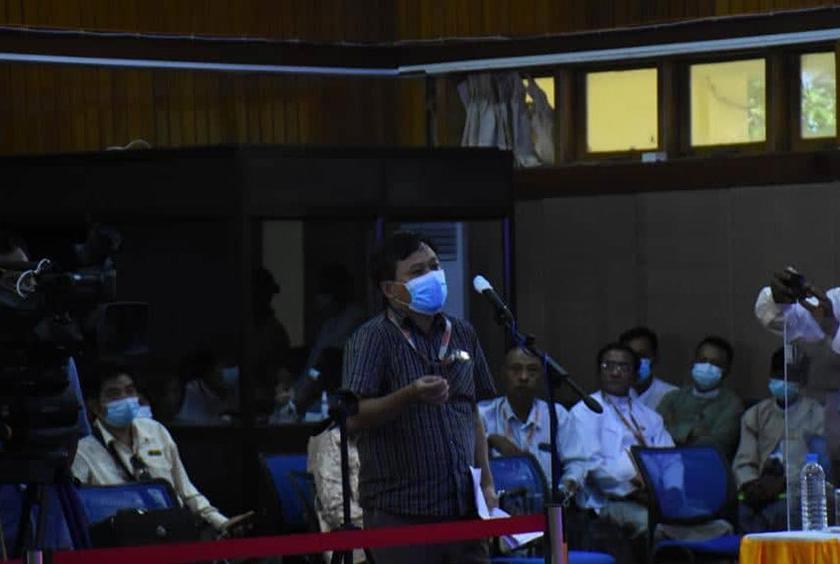
(Naypyidaw) The Weekly Eleven chief editor Dr. Min Lwin questions why former Yangon chief minister U Phyo Min Thein–the chief minister who is infamous for being the most corrupt–is the only member of the NLD government who has yet to be charged with corruption. He posed this question to Major-General Zaw Min Tun, the Spokesperson for the State Administrative Council (SAC) during the SAC’s regular press conference on June 16.
“I am Dr. Min Lwin, the chief editor of Weekly Eleven. Former Yangon Chief Minister U Phyo Min Thein has been involved in multiple corruption cases during his tenure. For instance, during the Yangon Petrol issue, action was taken against numerous ministers in the Yangon cabinet and other government employees. However, action was not taken against the most responsible policy-maker, which is the chief minister. In fact, U Phyo Min Thein is believed to be responsible for the loss of trillions of kyats (billions of U.S. dollars) in the nation’s finances. Other chief ministers are only responsible for losses in public finances of 100 billion kyats (approximately $50 million U.S. dollars). In a similar way, according to the corruption charges filed against Daw Aung San Suu Kyi and U Win Myint, the loss in public finances is just over 45 billion kyats (approximately $23 million U.S. dollars).
As such, among the members from the previous NLD government, U Phyo Min Thein is considered to have caused the greatest damage to public finances. This begs the question as to whether there is a political motivation as to why U Phyo Min Thein has remained the only member of the previous NLD government who has yet to be charged.
Additionally, as far as we know, U Phyo Min Thein lived in his apartment on Maung Htaw Lay Street before he became chief minister. His wife owns a tiny gold shop. Interestingly, after he became chief minister, he is believed to have become extremely wealthy enough to bribe Daw Aung San Suu Kyi with 7 viss or 11.43 kg of gold and $U.S. 600,000. As such, has there been any investigation conducted in regards to how U Phyo Min Thein was able to accrue massive amounts of personal wealth during his tenure as Yangon chief minister?
Lastly, does the Anti-Corruption Commission (ACC) plan to launch a comprehensive investigation into all possible corruption cases involving U Phyo Min Thein? If there is such an investigation, will it be published in a transparent manner?”
In response to this question Major General Zaw Min Tun said:
“I have already answered partly about this. Some cases have to be dealt by the Anti-Corruption Commission. In this regard, an original case has to be investigated and other related cases will come under investigation. The commission has no reason to hide their findings and results. As I have said, it is the government that will decide in a fair manner based on the reports and findings of the commission. This is all I want to say now.”
U Kyaw Soe, spokesperson of the Anti-Corruption Commission (ACC), said at the press conference that Myanmar became a signatory to the United Nations Convention against Corruption in 2005. An anti-corruption law was approved and signed in 2012 and drafted in 2013 based on the provisions of the UN convention.
“The aim of forming a commission is also in line with the provisions included in the UN convention. Since 2014 to date under the successive governments, the commission has been striving to ensure a clean government and good governance. We have no personal grudge. Based on a complaint sent to us, we formed an investigation team. After investigation, we take measures for prosecution based on that investigation. In the past also, we went this way. Now and in future, we will continue to act in accord with the law.”

